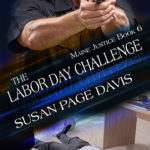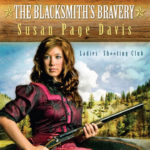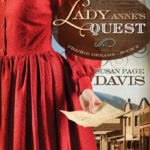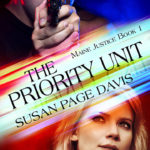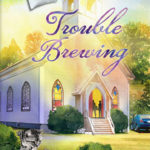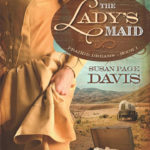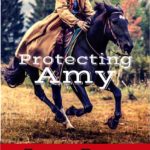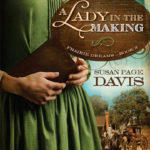1. Ethan Chapman doesn’t want to be sheriff. He’s shocked when the town fathers choose him for the job. But within weeks he is reluctant to give up the position. Why has he changed his mind?
2. Orissa Walker is known to be a proud woman, but others are not immune to this flaw. How does Gert’s pride manifest itself in the story? Do you see a change in her attitude toward Cyrus? Isabel? Milzie? Bitsy? Others?
3. How does the Ladies’ Shooting Club help Gert, Libby, and the other women look differently at their neighbors?
4. What reasons do Hiram, Libby, and others have to resent Cyrus? How much of this was brought on by his own actions? Do you feel Isabel was justified in rebelling against her father? Was she right to work in the boardinghouse? To insist she keep her school?
5. How does Ethan tread the line between smoothing the mayor and town councilors’ feathers and doing what he feels is right? How could he have done better?
6. Ethan sees Gertrude as two separate people: plain, practical Gert and sweet, lovable Trudy. When he grieves over his army experience, close-lipped Hiram advises him to take God at His word and move on. How does this help Ethan in his relationship with Gert-Trudy and let them merge into one? And should Hiram perhaps take his own advice?
7. Why are the town fathers embarrassed when the new minister assumes Jamin Morrell is chairman of the pulpit committee? Do their relationships with the saloon owners change after the minister arrives?
9. How do Gert and Libby decide who gets to join the shooting club? Why is the act of joining so divisive? Was Pastor Benton right to allow Apphia to join? If he’d objected, should Apphia have stayed away?
10. Too late, the ladies begin to help Milzie. How does Gert’s approach differ from Libby’s? From Apphia’s?
11. Bitsy tells Ethan, “I don’t think God is ready for me yet.” How would you have responded?
12. Some of the residents of Fergus seem to live contradictory lives. Augie Moore, who is Bitsy’s bartender and cook, owns one of the few Bibles in town. Many of the faithful churchgoers spend Saturday night at the Nugget or the Spur & Saddle. Gert and Hiram, both believers brought up in a Christian home, spend Sundays alone and silent for years, and it seems they have rarely mentioned their faith to others. How critical is it that the outward life match the inward? How did the town’s history contribute to this discrepancy? What changes did you see in any of the townspeople?



